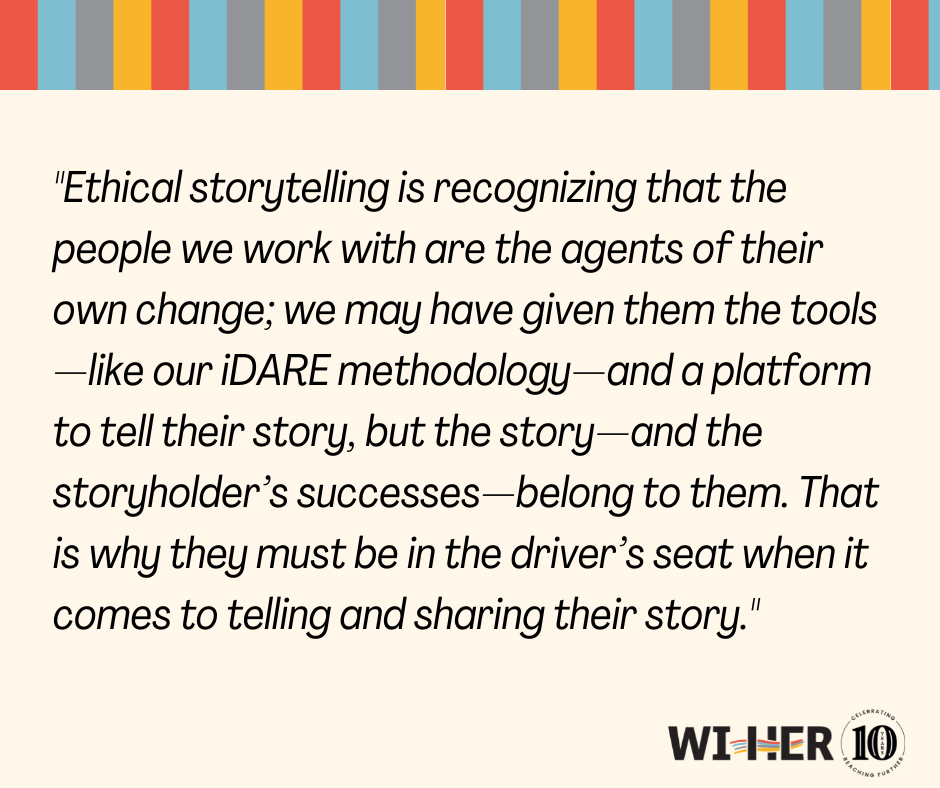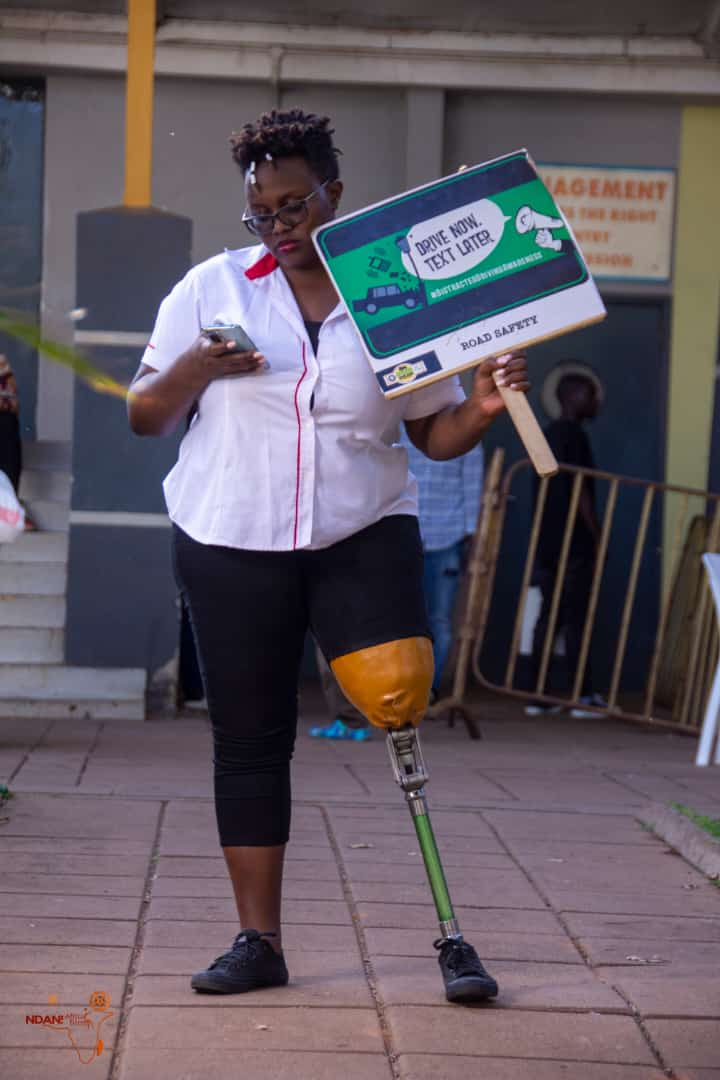By Liz Hall, WI-HER Associate, Communications
WI-HER strives to tell stories ethically, and we are setting a higher standard in storytelling by ensuring that “storyholders,” the individuals whose story we are helping to tell and amplify, are in charge of the narrative. Rather than focus on documentaries alone, our Knowledge Management team is developing new ways of sharing and telling stories of those we work with—for example, through podcast interviews. WI-HER co-creates and implements solutions that empower storyholders to tell stories that they are proud of.
Our goal is to 1) connect with others through stories, including donors and funders, 2) recognize and address the power dynamics inherent in telling the stories of those we work with, and 3) amplify the whole story of an individual and community. Our intent is to not only connect and amplify, but to ensure that storyholders have the opportunity and agency to tell the stories they personally want to tell. In turn, we learn from the storyholders.
For example, we could simply state that WI-HER developed a questionnaire to assess the level of mass drug administration (MDA) coverage to reach more people during MDA. But what if, instead, we shared the story of Hirut, who lives in a rural village in Ethiopia and that, due to her hearing disability, she often missed out on learning about the annual MDA for trachoma? To better reach individuals who are usually missed, like Hirut, WI-HER adapted existing tools, including the aforementioned questionnaire, which was originally developed by the Fred Hollows Foundation, to apply a gender equity and social inclusion (GESI) lens. In applying a GESI lens, supervisors were better able to identify, assess, and critically document potential root causes for not taking MDA, such as an individual’s disability, as was the case with Hirut.
Both of the above “stories” emanate from the same activity, but the latter description is more impactful as it goes beyond facts and figures and puts the person we are working with at the center of, and the reason for, the story. (Read more of Hirut’s story here).
Human-interest stories allow us to get to the heart of a project, as they show how our activities and interventions impact real people. But we must ensure we are telling the stories of the people we work with in an ethical way. For instance, Hirut is more than her disability, and we must convey that in the stories we share.
This is why ethical storytelling is so important; it goes beyond human-interest stories and puts the storyholder in the driver’s seat. Take for example the life and work of Charlotte Kangume—a lawyer, baker, survivor, and disability and inclusion rights advocate based in Uganda. If Charlotte’s story was written from an organization’s perspective, her ‘single-sided’ story might portray her solely as a victim. But, as she shared in her own words in a recent podcast interview with WI-HER’s Elizabeth Kemigisha, Charlotte is changing the way the world looks at amputees through her disability advocacy. She also offers psychosocial rehabilitation through Amputee Self-Help Network Uganda, among many other initiatives and projects. (Listen to the full podcast interview here).
With ethical storytelling, the storyholder is powerful because they own their own story and direct how it’s told. They are the agents of their own change. From storyholders, and through ethical storytelling, we gain learning.
WI-HER is conscious of the words we use and the way we tell and share stories. We also redefine consent by striping ourselves of any presumptions we may have of the storyholder to find the balance between telling detailed stories and protecting the privacy of the storyholders.
Our end goal is the sustainability of our activities and interventions. We want to see lasting change through locally-led solutions, as such we need to ensure that the storyholders are the ones who have and maintain the power in the stories we share.
Ethical storytelling is recognizing that the people we work with are the agents of their own change; we may have given them the tools—like our iDARE methodology—and a platform to tell their story, but the story—and the storyholder’s successes—belong to them. That is why they must be in the driver’s seat when it comes to telling and sharing their story.
When we uplift and amplify the stories of the people we work with, we can ensure that the work they personally led in their lives and communities is being told in a way that the storyholder is proud of. WI-HER is committed to ethical storytelling, and we invite you to join us.
“Ethical storytelling also brings satisfaction to the storyteller. It allows you to be empathetic, and transparent with the storyholder. It unearths aspects we have since pushed to the back during our work – Things like getting deep consent from the storyholder, sharing where and how the story will be published. Ethical storytelling pushes us, the storytellers to be different, be present, and intentional about flipping the power. Most importantly, it inspires hope.” – Elizabeth Kemigisha, WI-HER Associate, Knowledge Management
 “If you look at my posts or photos, I normally post while showing my limb, because I am very proud of my metal. I want people to know me. I want for young girls to look at me, if that lady can walk with her limb out there, and she’s not afraid, and she’s still dressing nicely and looking beautiful, then why can’t I? I want to be a role model to the young generation so I keep posting such positive material.” – Excerpt from a WI-HER podcast interview with Charlotte Kangume, co-founder of the Amputee Self-Help Network Uganda
“If you look at my posts or photos, I normally post while showing my limb, because I am very proud of my metal. I want people to know me. I want for young girls to look at me, if that lady can walk with her limb out there, and she’s not afraid, and she’s still dressing nicely and looking beautiful, then why can’t I? I want to be a role model to the young generation so I keep posting such positive material.” – Excerpt from a WI-HER podcast interview with Charlotte Kangume, co-founder of the Amputee Self-Help Network Uganda

Charlotte Kangume, co-founder of the Amputee Self-Help Network Uganda, recently shared her story through a podcast interview with WI-HER’s Elizabeth Kemigisha.





